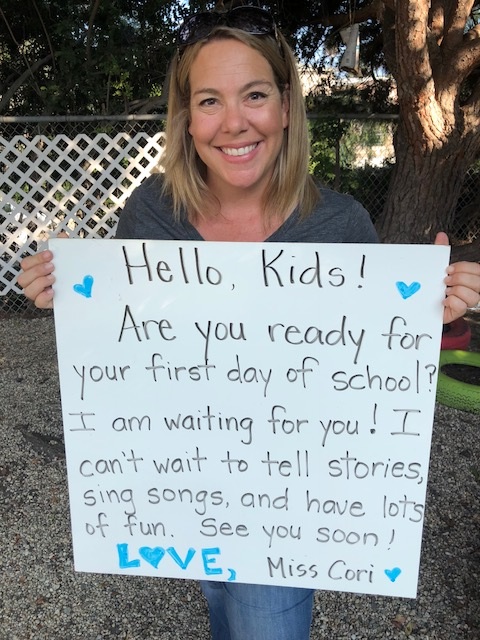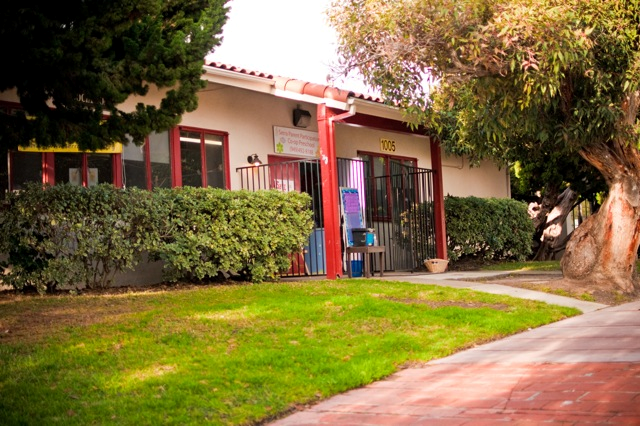What is a Co-Op?
That’s a good question. A cooperative nursery school will demand a great deal more time from you, more than a school to which you simply pay tuition. So the question is worth asking: Why go to all the extra trouble?
The answer does not lie primarily in what a co-op experience will do for your child. A good co-op and a good plain nursery school will have very similar goals. They will both work toward rounded social, emotional, physical, and intellectual development. They will have similar programs: The same art, music, science and math experiences, good literature, language, physical activities, and play.
First let’s look at a co-op from the adult’s perspective. In a co-op preschool the adults, parents, mothers and fathers, and often times grandparents gain significant advantages. A co-op is your school as much as it is your child’s school. You work in it. You give your energy and your ideas. You help to shape it and make it whatever it becomes. You take great joy and pride in the successes of the school because those successes are yours.
Co-op parents take their school responsibilities seriously and consequently learn so much about early childhood development and education. They meet for parent education and discussion. Parents work directly in the classroom with the children. On a regular basis, co-op parents see their child’s behavior and growth in the group. They see other children and the program at work. They are in the program not just for themselves and their own child, but for other children and their parents as well.
The co-op nursery school offers the adults other benefits. One frequent outcome is that parents build new relationships. Sharing the experience of making a co-op a good school brings adults close together. Parents often become lifelong friends and true partners in their child-rearing.
Co-op parents don’t object to the financial benefits either. Who doesn’t want to save money? A cooperative nursery school costs less than a comparably good nursery school. Co-op parents give their time, energy, and skills into their school. They do menial work and dirty work, as well has professional work and creative work that parents in other schools pay someone else to do. Co-op parents pay less cash but obligate themselves to some very definite responsibilities.
Parents also have school jobs. Parent contributions are essential. They must be self-disciplined to get the work done. They also obligate themselves to work on getting along with the other parents. Disagreements on management, child rearing, and education do arise. Co-op parents must be willing and able to talk openly with the Board so school life can go forward.
Co-op parents also obligate themselves to a special relationship with the professional teacher/director. In a co-op, parents play a key part but no school can be great without strong, trained leadership. The professional leadership is essential and is enhanced with the full utilization of the talents and insights of parents. It calls for a rare mixture of mutual trust and respect among adults of differing backgrounds.
What about the special gains co-op children make? Co-ops usually have more adults present than do standard nursery schools. The extra hands and minds can mean greater bounty and variety in the co-op program. It can mean the chance for more attention and more help for the individual. Another advantage: In a co-op, “school” doesn’t end at twelve, nor does it end on Friday. A co-op child is apt to be surrounded by a common point of view twenty-four hours a day. The child is apt to get more consistency in guidance and more richness in stimulation, home and school and school and home.
Since there are more adults present in a co-op classroom, there is more time to effectively and thoughtfully communicate with children, whether it be with conflict resolution or with simple yet meaningful feedback on what they are playing. In a co-op, the time and resources are there to fully guide children through their development. There is no quick and dismissive “good job” from the teacher, then moving on. There are no “time outs.” With all the adults present, there is ample time and hands on deck to support the children as they resolve issues that may arise.
Despite all the advantages for children and parents, I know that co-ops are not for everyone. Those mothers and fathers who choose co-ops and who stay with them are the ones that can answer the question: “Why a Co-op?” I think they would say that a cooperative nursery school experience is one way of getting an unforgettable school experience for your child and an amazing way of getting some very pleasing experiences for yourself. It truly is a family-oriented preschool.




